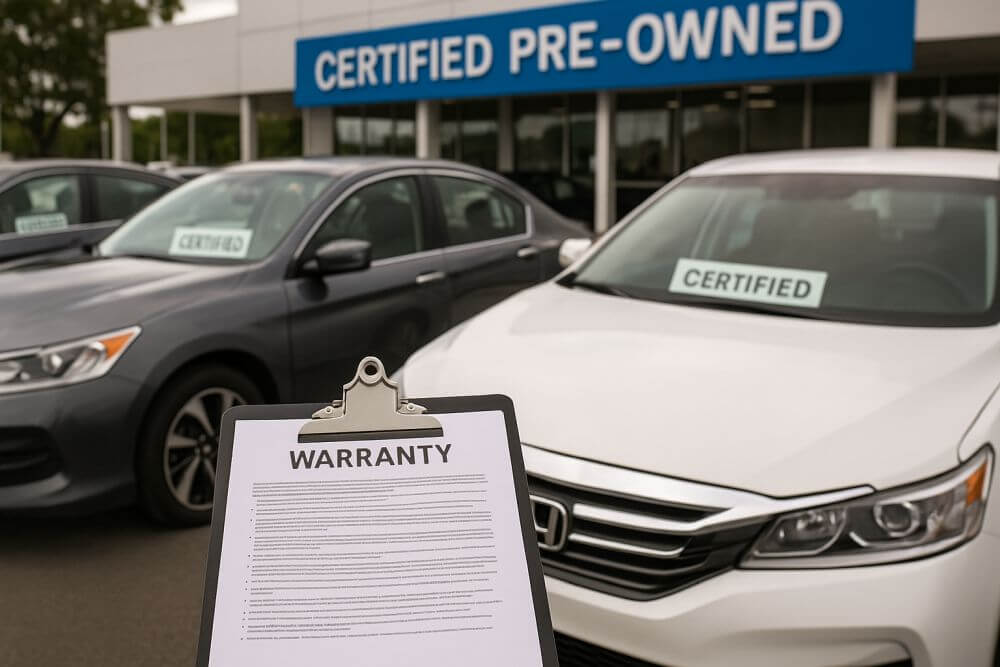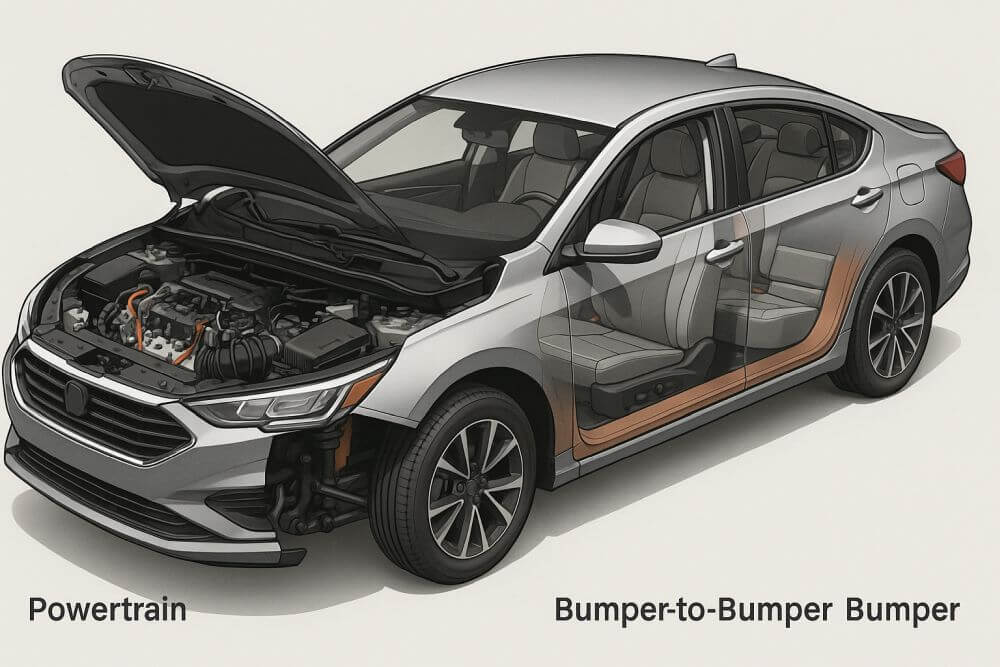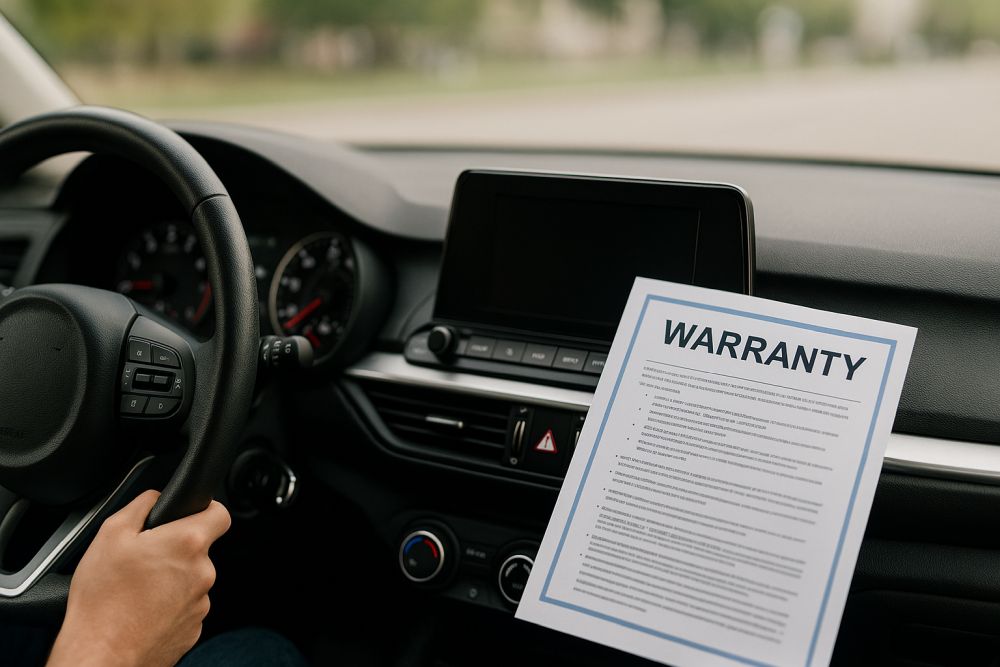If buying a used car is challenging, then buying a used car from a private seller is even more so. Unlike dealerships that have their reputation on the line, private sellers come in all varieties – from those that are honest about what they are selling to those that are just out to make the quickest buck possible. In order to make sure that you get the best used care from a private seller and not taken for a ride with a possible lemon, here are ten tips for buying your new-to-you vehicle.
1. Know what you are looking for
All too often, someone spots a car parked near a busy street with a “for sale” sign hanging in the window and rushes in to buy it. Long term, however, they may not find that to be the most expedient way of buying a car from a private seller. You never want to jump on the first car that you see, but rather do some free VIN number checks and research as to the type of car that will best suit your needs. Create a short list of makes and models of interest, and then start your research from there.
2. Meet the seller (and the car) in person
Have you ever hear the saying “too good to be true?” Unfortunately, that is often the case for cars sold sight unseen via Ebay, Craigslist, and similar avenues. You always want to buy from someone that you can meet a person. After all, you need to inspect a car in person. You cannot tell how well a car runs from pictures, and you cannot even tell for what condition the car is in through nicely lit photos. Just because the picture is of a vehicle in pristine condition does not mean that the car still is – or if that is even a picture of the car they have for sale.
3. Research previous owners
Unless you are one of the lucky people that finds a car for sale by the original owner, it is often helpful to know who the previous owners were. A vehicle history report, or even a free vin check will allow you to verify that the car is indeed a one person vehicle, or at least give you a brief picture of where the car has been. Knowing who the previous owners were and how well they cared for the car will help you to determine what sort of condition the car really is in.
4. Know your prices
If you have done your research on your ideal vehicle, then likely you have run across a variety of prices as well. Knowing how much a car is really worth is an important part of negotiating. Most sellers will try to sell the car for the highest price possible, which could cause you to overpay. Looking up Kelley Blue Book prices will give you a ballpark figure of where the car should be priced, and then you can use other considerations such as the condition of the car, work that has been done or needs to be done, upgrades that have been included, etc. to set the final price. You can plan on the current owner marking up the actual value 10% to 20% to leave room for negotiating.
It is also helpful to go in with a budget in mind of what you are willing and able to pay and then stick to it. Having the cash on hand can make it a lot easier to stick to a budget, and it can also be a powerful negotiating tool. If you have less than the asking amount, but still a reasonable offer on hand, the seller might be willing to come down in price, instead of going through the hassle of looking for another willing buyer.
5. Give it a thorough visual inspection
Even the untrained eye can get a feel for how a car has been treated by giving it a thorough once-over. Look for things that could signal the need for major repairs, such as uneven wear on the tires, fluid leakages, and large rust spots. If anything does not look right, inquire from the seller what is actually happening with the car. While a less-than-cosmetically-perfect vehicle might get you from point A to point B, details that have not been attended to could signal serious problems that will come up down the road.
6. Take it for a test drive
If you think that you have found the car that you want to buy from a private seller, always take it for a test drive. It is important to know how the car handles, plus you can also listen to make sure that there are no ominous noises coming from under the hood. The test drive is also a good opportunity to make sure interior items like the radio, air conditioner, and heater all work as well. You would not want to wait until there is a foot of snow on the ground to find out that you have no heat!
You can also look for driving issues like misaligned steering, engines that tend to overheat, squeaky brakes, and other issues while you are on the road.
While the car is on is also a good time to check anything electrical, such as head lights, tail lights and running lights, automatic windows and locks, windshield wipers, and similar equipment.
7. Get a second opinion
Unless you are a mechanic yourself, it is always a good idea to go to a mechanic to get a second opinion about a car. If the seller is honest, then they should have no problem with you taking the car in to the mechanic of your choice. While this could end up with you spending money towards a car that is ultimately a lemon, it is a worthy investment. Knowing what you are getting in to before you buy is always the best option.
It is also a good idea to see any repair and maintenance records that the previous owner might have, as these can give you some idea as to how well the car was taken care of.
Lastly, consider getting a vehicle history report or doing a private VIN number lookup to get a more detailed picture as to the history of the car. If there is anything serious on the history, such as an accident, you should be extra cautious when buying the car from a private owner.
8. Be willing to negotiate
If you did indeed look into the prices of similar used cars and crunched the numbers for your budget, then you will also realize that prices of cars, particularly those from private sellers, tend to be somewhat fluid. Most people that sell things, whether it is knickknacks at a garage sale or a used car, leave some room open to haggle.
The goal is to find the sweet spot between the highest price you are willing to pay and the lowest price that they are willing to take. Be prepared for some back and forth discussions on price. Also, be prepared to walk away if the deal is not what you are looking for. There are other cars out there, so do not overpay for one just because it is sitting in front of you.
9. Have a paper trail
Anything that the seller promises you should be written down, and you should always create a Bill of Sale. Not only does this give you a paper trail to fall back on if the car purchase turns out to be less than legitimate, but it also gives you some legal ground to fall back on. If the seller is promising that the car purrs like a kitten or they will buy it back, get them to sign a statement stating that.
Without a paper trail most courts look at buying a car from a private seller as an as-is agreement. If the person is unwilling to document the sale on paper, then it is time to be very suspicious as to their actual intent.
10. Keep a clear head
As nice as the seller might be, it is very important to remember that they are always going to look out for themselves before they look out for you. This means that you have to take everything the seller says with a grain of salt. If they make claims or promises of the car, do the research to make sure that it adds up. Keep them talking to see what details you can get out of them – you might be surprised at the information that comes up in a casual conversation. Take your time and always go with your gut feeling.
If something does not feel right, ask if the seller is willing to allow you to sleep on it. Unless they have a slew of people banging down the door to buy the car, you should have no problem getting the time you need to get comfortable with the idea. If you cannot get comfortable with the idea, then walk away – there will be another used car on the market to look at tomorrow.
Shopping smart will allow you to find the best deals when buying a used car from a private owner. If you are careful, then there are great deals to be had.


